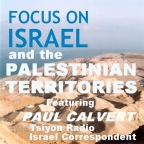This receiving email address was subscribed to our email list at our website.
Those wishing to may unsubscribe at anytime at the link provided below.
Having trouble reading this email? View it on our website.
| Tsiyon News | |
Tsiyon Messianic Radio Newsletter Vol 5.47 - 09/13/6010 TAM - 11/19/2010 | |
|
|
Visit our website to hear this program free! | |
Click button to subscribe to podcast. | |
Tsiyon News |
Listener Q + A
Listener Comment - Ok
to say "God"? Look up god at Dictionary.com I recently shared your podcast with a friend and he wanted to
know as a member would he be able to get a written format of
your message. The reason is to check all of the sources you give
in your studies. Also what are the obligations of be a member
and what are the benefits apart from hearing the enlightening
messages you give (Please believe me when I say I have not heard
anyone talk on any of the subjects you discuss). Your messages
serve as a good tool to the Body of Y'shua to keep watch and not
falling asleep with no "oil" in their lamps. Thank you.
Please let me start by thanking our
heavenly Father for your ministry and how He uses you and you
wife to reveal the hidden works of Satan. My first question is
on the title God. Sacred Name groups claim Yahweh shouldn't be
referred to ask God because that was the name of a pagan diety "Gawd"
or "Gott" a deity of fortune. They site Isaiah 65:11 as their
basis. This is from etymology dictionary online:
O.E. god "supreme being, deity," from P.Gmc. *guthan (cf. Du.
god, Ger. Gott, O.N. guğ, Goth. guş), from PIE *ghut- "that
which is invoked" (cf. Skt. huta- "invoked," an epithet of Indra),
from root *gheu(e)- "to call, invoke." But some trace it to PIE
*ghu-to-"poured," from root *gheu- "to pour, pour a libation"
(source of Gk. khein "to pour," khoane "funnel" and khymos
"juice;" also in the phrase khute gaia "poured earth," referring
to a burial mound). "Given the Greek facts, the Germanic form
may have referred in the first instance to the spirit immanent
in a burial mound" [Watkins]. Cf. also Zeus. Not related to
good. Originally neut. in Gmc., the gender shifted to masc.
after the coming of Christianity. O.E. god was probably closer
in sense to L. numen. A better word to translate deus might have
been P.Gmc. *ansuz, but this was only used of the highest
deities in the Gmc. religion, and not of foreign gods, and it
was never used of the Christian God. It survives in English
mainly in the personal names beginning in Os-.
I want my lawyer, my tailor, my servants, even my wife to
believe in God, because it means that I shall be cheated and
robbed and cuckolded less often. ... If God did not exist, it
would be necessary to invent him. [Voltaire]
God bless you after someone sneezes is credited to St. Gregory
the Great, but the pagan Romans (Absit omen) and Greeks had
similar customs.
Tsiyon Answer
- Ok to say "God" They were all filled with the Holy Spirit, and began
to speak with other languages, as the Spirit gave them the ability
to speak. Now there were dwelling in Jerusalem Jews, devout men, from
every nation under the sky. When this sound was heard, the multitude came together, and
were bewildered, because everyone heard them speaking in his own
language. They were all amazed and marveled, saying to one another,
“Behold, aren’t all these who speak Galileans? How do we hear, everyone in our own native language? Parthians, Medes, Elamites, and people from Mesopotamia,
Judea, Cappadocia, Pontus, Asia, Phrygia, Pamphylia, Egypt, the parts of Libya around Cyrene,
visitors from Rome, both Jews and proselytes, Cretans and Arabians:
we hear them speaking in our
languages the mighty works of God!"
Acts 2:4-11
Notice that it was a direct Divine act that caused the Messianic
Jewish believers to witness to others gathered in Jerusalem "from
every nation under the sky." The miracle was that "everyone heard
them speaking in his own language." In fact, the visitors exclaimed
"we hear them speaking in our languages the mighty works of God!"
Thank you for writing. I'm glad you
brought this subject up, since I know a lot of people wonder about
this. Let me start by saying I share the concerns of many who want
the Hebrew names of YHWH and His Son to be honored and revered. For
that reason, I use those Names frequently and always with the
highest respect.
I use the terms "Lord" and "God" from time to time also, when I
believe one of those terms to be appropriate with my
English-speaking audience. I do not see the use of those terms, on
occasion, as being in any way at odds with my more usual use of the
Hebrew Names. Why? Because YHWH created all languages at Babel,
knows and understands all languages, and wants to be known and
glorified in every language. We have proof of this fact in Acts 2.
This was the first Shavuot after Messiah's death, resurrection and
ascension, when He poured out the Holy Spirit on the Messianic
believers gathered together in Jerusalem. Here is what happened:
The inspired account is telling us that the Holy Spirit
caused the talmidim to declare the "mighty works of God" in other
languages. What was the point of that? SO THAT THE MESSAGE WOULD BE
UNDERSTOOD BY THE HEARERS! The Holy Spirit here sets conveying
understanding of the message as a higher priority than using precise
Hebrew. When the visitors exclaimed "we hear them speaking in our
languages the mighty works of God" what word for "God" was each of
them hearing? Doesn't this sentence mean they each heard whatever
word for "God" was common in their own language? That's what it
means to me. Obviously, the Holy Spirit did not consider using a
foreign word for "God" as sinful. Therefore, neither do I.
Objecting to the use of the word "God" on the basis of Isaiah 65:11
is no doubt sincere, but is also misguided. Even if there were a
deity of fortune named "gawd" or "gott" that is not the same as the
English word "God" in either sound or meaning. As for the etymology
of the word, even the definition you've included indicates they
don't really know, since it includes a few different guesses. All we
know for sure is what "God" means now - "supreme being, deity." That
strikes me as a useful word to use in conveying "the mighty works of
God" to English speaking hearers, so I have no problem in using the
word.
In summing up my general position about this I would note that
intelligible communication is often not a high priority for many in
the Hebrew Roots / Messianic sphere. I often hear complaints that
the jargon and fights over minutia of difference in the spelling
and/or pronunciation of specialized Hebrew words is a "turn-off" for
truth-seekers exploring and looking for answers. Personally, in many
cases I agree with that, which is why I avoid a lot of Hebraic
jargon in favor of being understood by truth-seekers. That makes a
few people mad at me. However, it makes my message available to a
lot more people, which I think is the whole point of Acts 2 for me.
About your other questions: We have transcripts for some of the
programs but not all. We also have supplements for some of the
programs but not all. The supplements usually provide documentation
for news sources and the like. Partners give a monthly offering of
as little as $12 per month and pray for our ministry. They can
cancel at any time. They have full access to our archives and our
online meetings. These are opportunities but not requirements for
them. They also have the spiritual benefits that accrue to those who
give of their resources to the advancement of the Kingdom.

| In this issue |
- Two Mysteries
- Latest News
- Visit Tsiyon Radio
| Recent Programs |
- Two Mysteries #255
- Iniquity in Paradise#254
- Lucifer the Trader #253
- Deceitful Injustice #252
- The Restrainer #251
- The Big Lie #250
- Waking Up! #249
- Come out of Babylon! #248
- Tabernacle With Him #247
- Gathering the Remnant #246
- Fruit for the Kingdom! #245
- Alien Abduction Dirty Tricks #244
- ET Encounters of the Occult Kind #243
- Space-gods, Space Frauds #242
- Wormwood #241
- Heavens Like A Scroll #240
- Sign of the Son of Man #239
- Flying Saucers a Sign? #238
- They Ascend to Heaven #237
- I Will Bring Them Down #236
- Raining Blood, Fire & Ice #235
- Meteor Impact Dream #234
- Solar Storm 2012? #233
- Impact from Space #232
- Occult Space NAZIs Recycled #231
- Occult Space NAZIs #230
- Shavuot! #229
- Powers of the Heavens Shaken #228
- Mazzaroth Signs 2008 #227
- Signs in the Sun #226
- Signs in the Moon #225
~ Latest Book! ~
Get a Free sample
| Theme CD |
| Be Prepared |
| Pass It On |
If you know someone who would like to receive this newsletter, please forward.
From Eliyahu
Two seeds equal two mysteries, growing and developing in tandem - and
in hostility to one another - side by side. One of these mysteries is headed for a definite and abrupt end. The other is going on with Y'shua into eternity. That's the one we are looking forward to sharing with you about, in this latest program.Blessings and Shalom,
Eliyahu ben David
www.tsiyon.org
Thanks to all of our Tsiyon Ministry Partners for your support of this ministry! |
©2010 Tsiyon A130-425, 5701 W Slaughter LN, Austin, TX,
USA, 78749
Please make offering checks to: "Tsiyon."
You may leave feedback, prayer requests and donations online here.
Subscribe or view archive here. Unsubscribe here.
.




